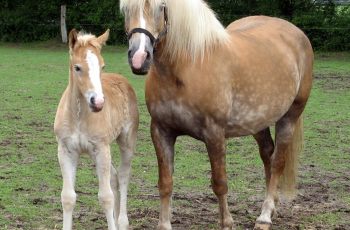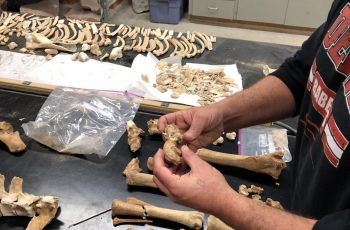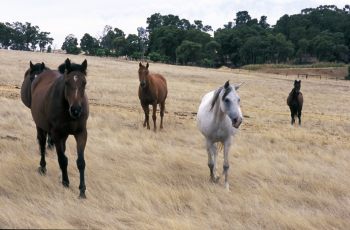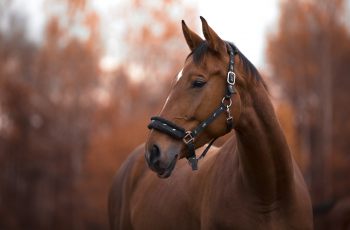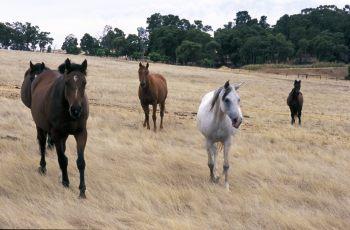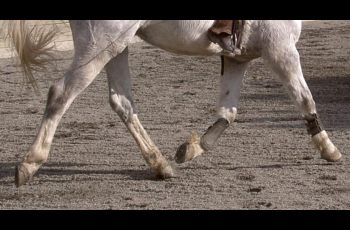Warmblood fragile foal syndrome (WFFS) is a fatal, inherited connective tissue disorder in horses that shares similarities with the human disorder Ehler-Danlos Syndrome.
Latest Horse Articles & News
February 6, 2021
A new analysis of a horse previously believed to be from the Ice Age shows that the animal actually died just a few hundred years ago--and was raised, ridden and cared for by Native peoples. The study sheds light on the early relationships between horses and their guardians in the Americas.
The findings, published today in the journal American Antiquity, are the latest in the saga of the "Lehi horse."
January 8, 2021
Critical to protecting the welfare of thoroughbred horses and the integrity of the industry is efficiently detecting the illegal practice of gene editing. Gene editing, a method of gene doping used to artificially and illegally enhance performance in human and animal athletes, is now on the agenda for the thoroughbred horse industry.
Gene editing: The new gene doping?
October 6, 2020
The Victorian Government is co-leading the development of a national horse traceability register, which will improve biosecurity and tracking measures for all horses across Australia.
A National Horse Traceability Working Group has been established to inform the design of the register, following agreement at the Australasian Racing Ministers Conference and Australian Agriculture Ministers’ meeting that Victoria and Queensland would lead its development.
October 5, 2020
Since ancient times, horse behaviour and the bond between horses and humans, have been a source of intrigue and fascination.
The horse-lore that has accumulated over the centuries is a rich mix of both useful practice (approaching horses from their left side, making them slightly less reactive) and unsubstantiated myth, such as the one that chestnut horses are especially difficult to deal with.
July 15, 2020
If you have a horse because you want to be an aspiring horseback rider or you need one on your farm, it’s important to know how to keep these beautiful animals healthy, strong, and happy. Although horses are known for their physical abilities and strength, you still need to ensure that they’re always at their best. Besides, they deserve to be loved and cared for like every other animal.
April 30, 2020
A new therapy could combat persistent joint infections in horses, potentially saving them from years of pain. Morris Animal Foundation-funded researchers at North Carolina State University have developed a platelet-rich plasma (PRP) lysate that, when teamed with antibiotics, can eradicate bacterial biofilms common in joint infections. The therapy could also be applied to other species, including humans and dogs. The team presented their findings in the Journal of Orthopaedic Research.
April 30, 2020
Latex exposure could be detrimental to a horse's respiratory health. That's the surprising discovery from Morris Animal Foundation-funded research at the Royal Agricultural University and University of Nottingham. While further investigation is needed, researchers say latex could be among the allergens responsible for causing severe equine asthma (sEA), a serious horse ailment with limited treatment options. The team published their findings in the Nature journal Scientific Reports.
April 26, 2020
Australia is known for offering high-class sports events that entertain people not only in the country but around the globe. Indeed, the country has a rich sports history, as Australians love playing and watching many kinds of sports. They like going to stadiums or venues to watch games live and cheer on their top teams. They also enjoy watching sports events on television and even placing bets from time to time.
March 17, 2020
A new study by Dr. Gus Cothran, professor emeritus at the Texas A&M School of Veterinary Medicine & Biomedical Sciences (CVM), has found that the Cleveland Bay (CB) horse breed has the third-lowest genetic variation level of domestic horses, ranking above only the notoriously inbred Friesian and Clydesdale breeds. This lack of genetic diversity puts the breed at risk for a variety of health conditions.


